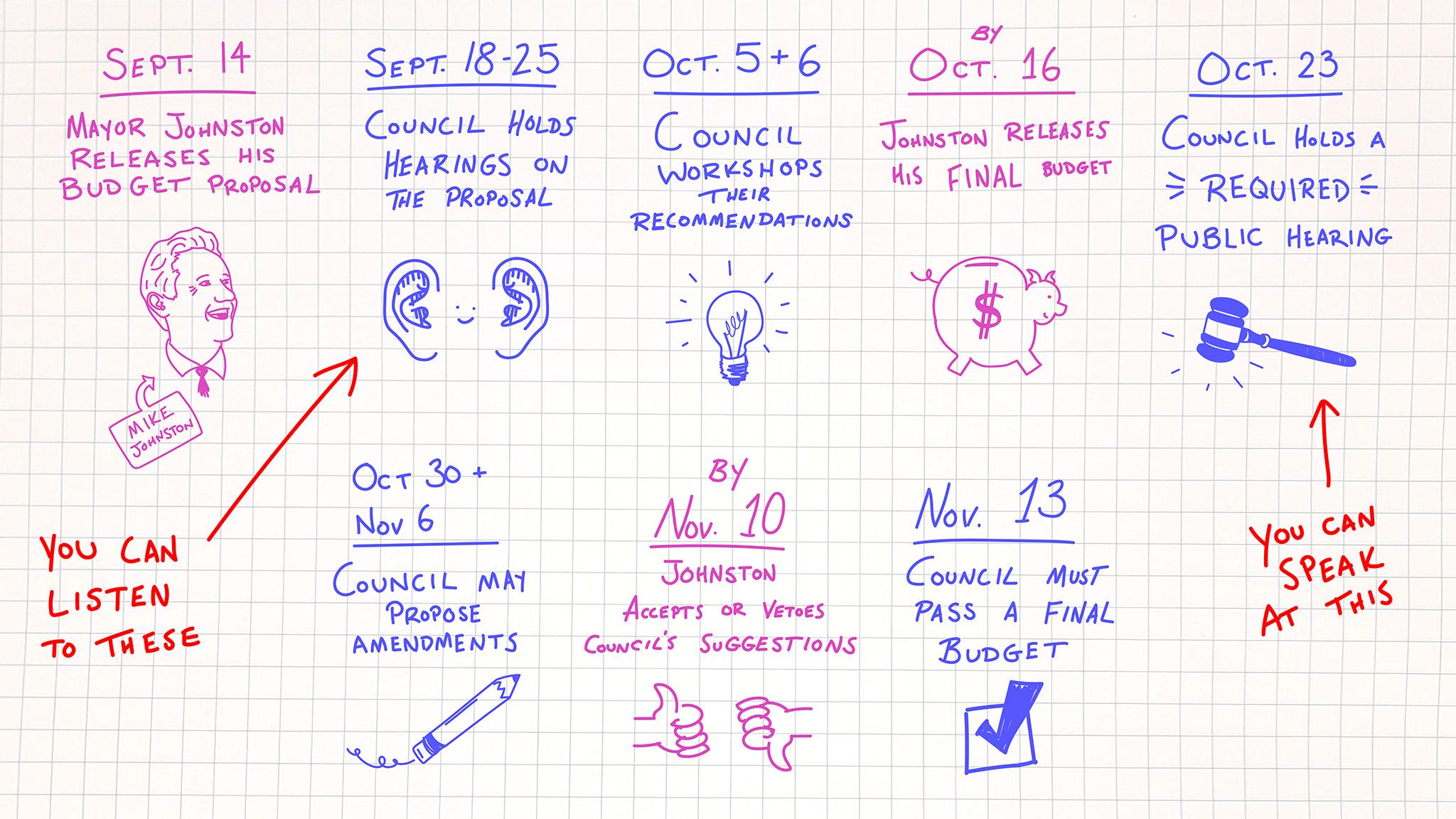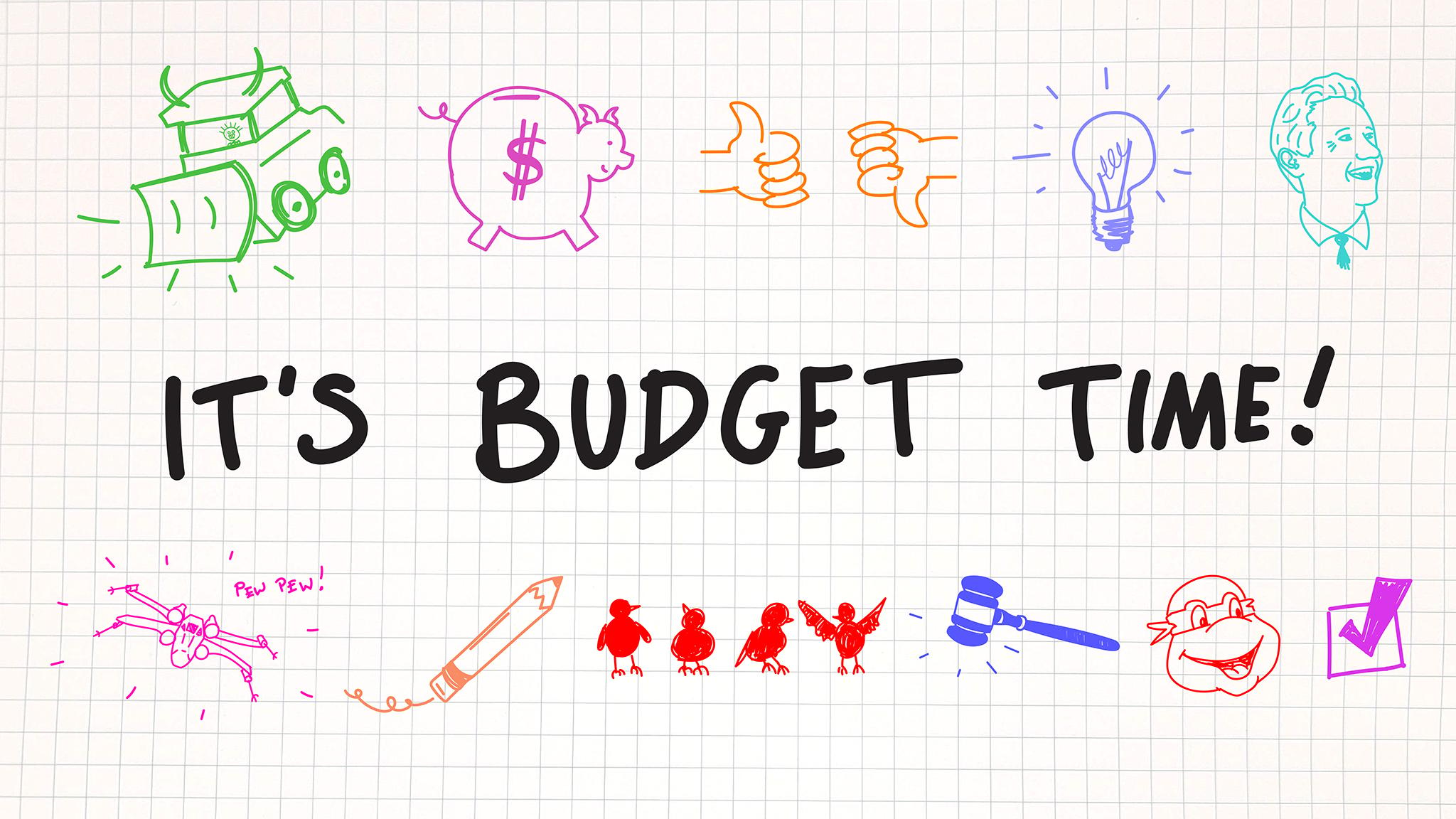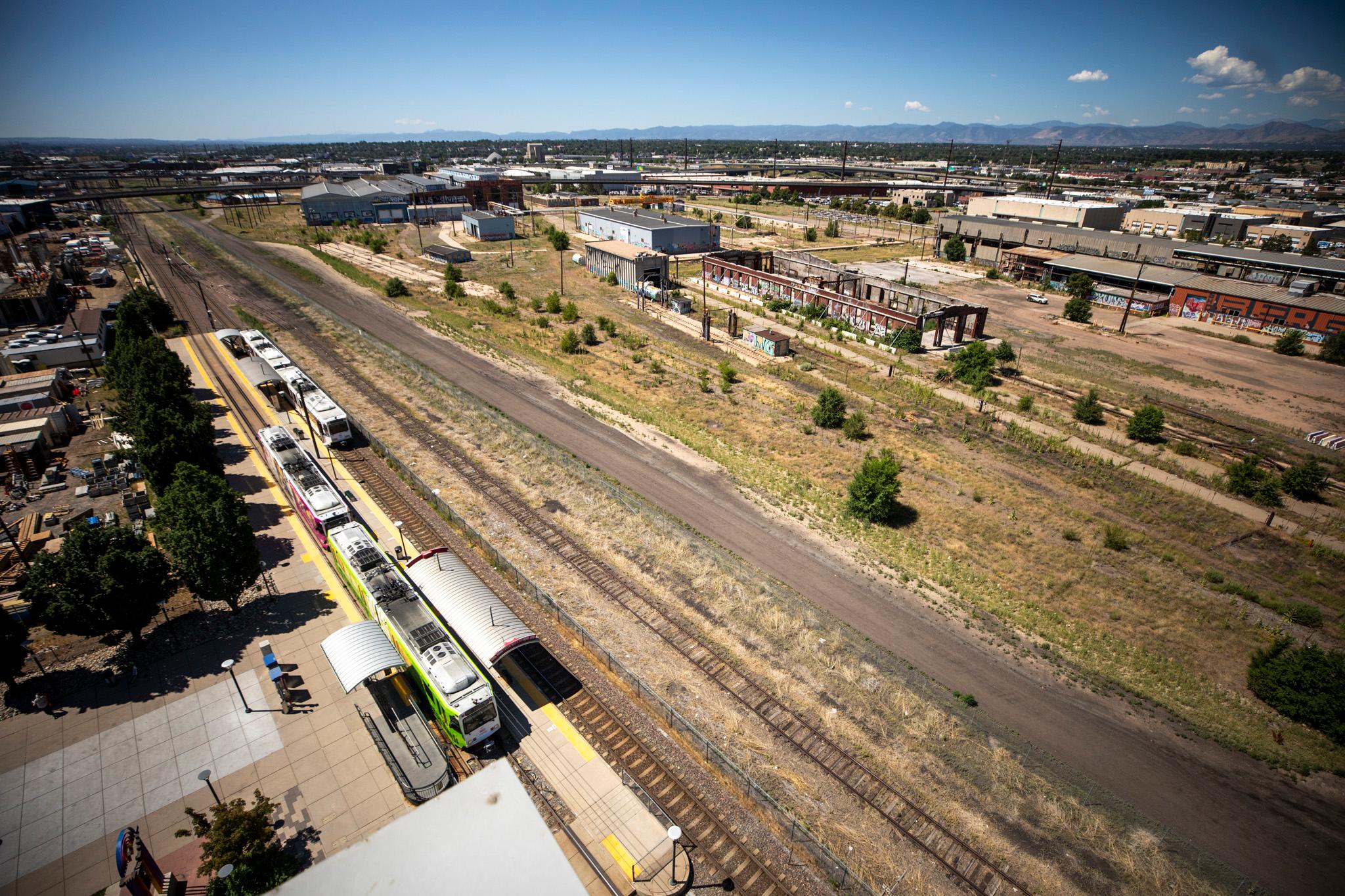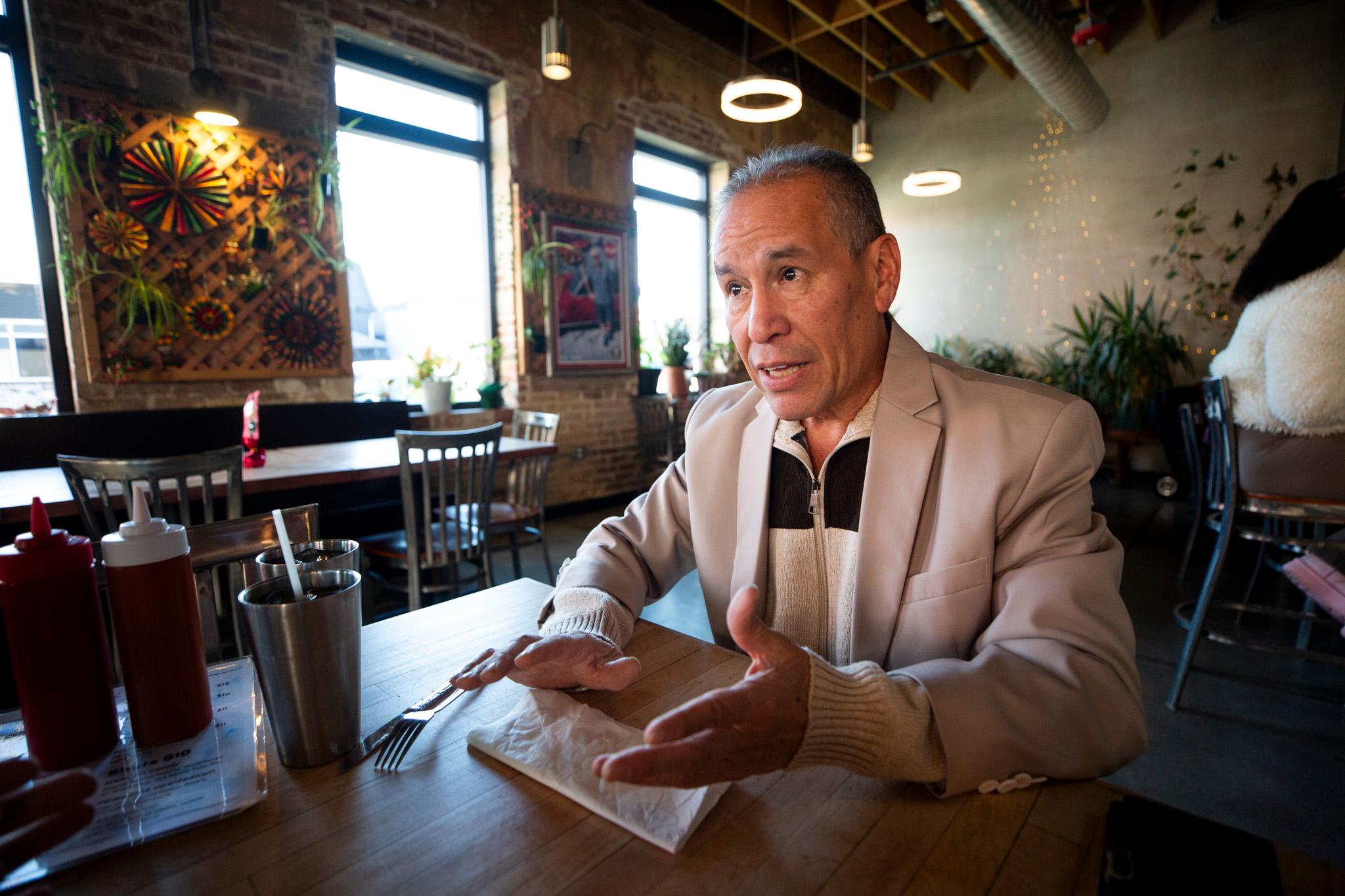When the pumpkins arrive in the grocery store and an almost-autumn breeze comes in the early mornings, it means one thing: budget season.
For the first time in 12 years, Denver is getting a spending plan drafted by someone not named Michael Hancock. Mayor Mike Johnston's $4.04 billion budget came out Thursday.
You can find all 770 pages of that budget here. Key elements include increased funding for rental assistance and eviction defense, money for plans to get an additional 1,000 people off the streets next year, funding to decrease permitting times on additional affordable housing units and more money for additional police officers.
It's all subject to approval from City Council.
"What you will see today is a budget dedicated to an affordable Denver, a safe Denver, a vibrant Denver, a greener Denver, and a Denver that's going to provide houses for all," Johnston said at a press conference Thursday.
While we take some time going through the budget and pulling out some key takeaways, here's a primer on what the budget looks like and how the process works.

Here's how to interpret the budget.
While the entire budget is $4.04 billion, only $1.74 billion of that is earmarked for the general fund, which is where the city's main operating fund comes from. That fund reflects the Mayor's priorities, which Johnston has listed as affordability, safety, downtown revitalization, a greener Denver and housing.
Most of the city's revenue comes from sales taxes, followed by property taxes. Part of the budget involves figuring out how to spend the final $76 million in federal pandemic recovery dollars; the city must allocate that money by 2024 and spend it by 2026.

A few months ago, City Council sent lists of priorities to Hancock and then Johnston. Council's priorities remain similar to last year, with a large focus on housing, homelessness, community safety, support for businesses, climate protection and multi-modal transportation. Council also asked the Mayor's office to consider funding for the city's emergency migrant response, something Denver did not anticipate in 2022 and 2023.
If you want to take a dive in, the budget summary highlights key parts of the budget, but the table of contents can also take you to a more in depth look at certain departments' funding.

Now that the Johnston administration has released the budget, Council will go into a week of budget hearings.
Hearings will take place Monday through Friday of next week, with a final hearing the following Monday, Sept. 25. Denverites can tune in to budget hearings online or on their TVs at Channel 8, or attend in-person in the Parr-Widener Community Room (Room 389) at the City and County building.
While these hearings will not have public comment, a wide range of city agencies will give presentations explaining their proposed budgets for the year. This is a good chance to hear about agencies' work during the past year and projects for the upcoming year. Officials will also update City Council on the state of their department staffing and break down their department's budget in more detail.
You can find the hearing schedule here.

In the meantime, City Council has another chance to send recommendations to Johnston, followed by a public hearing.
Councilmembers will participate in budget workshops on Oct. 5 and Oct. 6, and make additional recommendations to the Mayor's office. Johnston has to release his final budget proposal by Oct. 16.
Denverites can weigh in on the city budget by reaching out to their Councilmember, or by attending the city's public hearing about the budget on Monday, Oct. 23. People can tune in online or on the TV at Channel 8, or in person at the City and County Building.
Councilmembers will then have the chance to propose amendments to the budget at Council meetings on Oct. 30 and Nov. 6.
Like with other bills, the Mayor has the power to veto amendments passed by Council. City Council can override the Mayor's veto with nine votes.
It's worth noting: Budget amendments and overrides are rare. Last year, Council overrode Hancock's veto and approved just one amendment, funding new crosswalks in each district.
Former Councilmember Candi CdeBaca was known for bringing a number of amendments pulling money from the police budget to fund other initiatives, none of which passed last year. With her out of office, it's unclear how many amendments the new Council might bring.
Johnston will have until Nov. 10 to accept or veto any amendments.
Then, City Council can vote to override any vetoes on Nov. 13. City Council must also vote to approve the final budget by that date.
Have questions about the budget? Drop me a line at [email protected]











